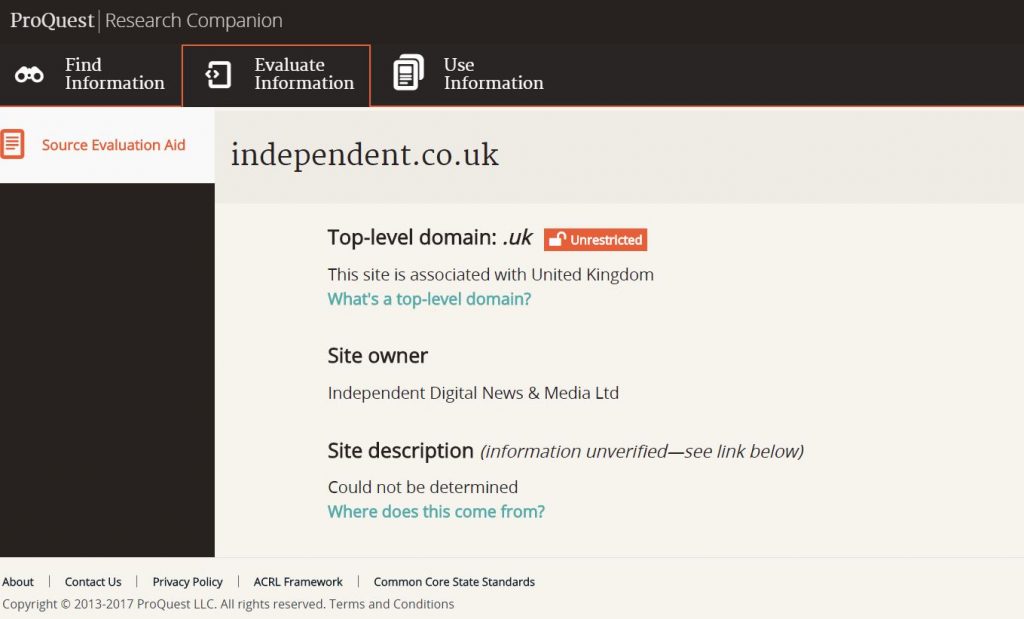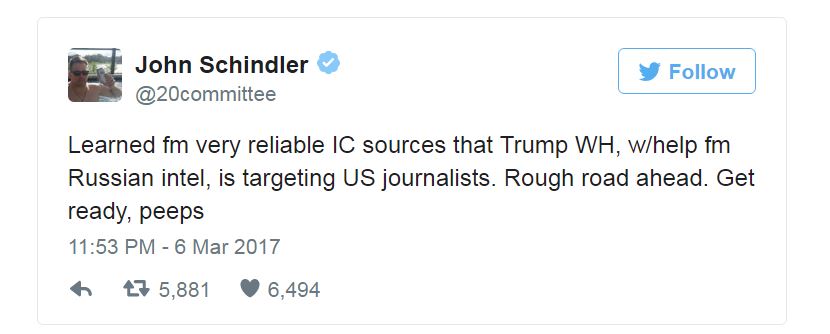It’s easy to believe a source credible when what is says conforms to your beliefs, but confirmation bias is dangerous. I’ve been taught that we all have bias, and the truth can only be shared/found if we transparently admit our bias (note: bias is not always or exclusively political).
A good lever for discussion might be found in the tweets of John Schindler. He was allegedly a high level intelligence community asset for a while, and taught at the Naval War College. Then he was involved in a sex scandal that included his dick pics (circa 2014), and was separated from that position. I’ve heard he has a PhD in something relevant from somewhere reputable, but since I don’t have a source, don’t trust me on that. It’s hearsay.
He was a darling of the right when he went after Hillary Clinton over her emails, and some on the left questioned his credibility with ad hominem attacks because of his associations with the right and his moral failings (of which there are apparently several). Interestingly, he is now a darling of those wanting an investigation of Trumps involvement with Russia on the US election and the influence of Russian money and party on the current administration. He has been both vilified and praised by both ends of the US political spectrum in short time.
I’m most recently read his tweet 6 March 2017 (stolen from the Independent- but available via twitter and elsewhere).
If true it indicates intimidation of the free press and abuse of power at the least – and I won’t even talk about collusion, sedition or treason because these things confuse me. But how credible is it? I found this tweet via a news aggregator that does not sift for credibility. It was posted in an article from The Independent. How credible is The Independent http://www.independent.co.uk ? I ran the site through the ProQuest Source Evaluator available via the Billington Library. I DIG THIS TOOL, but it isn’t magic. It seems to identify bias only when the source is open and proud of their bias, AND MANY sources hide ownership or where the money comes and goes from. Here’s what I found:
It seems to identify bias only when the source is open and proud of their bias, AND MANY sources hide ownership or where the money comes and goes from. Here’s what I found:
- So how credible is The Independent, and what is their bias (bias and credibility are not the same thing)?
- and how relevant are these questions if the source of info is merely a tweet?

So how does one judge the bias in a source? Remembering of course that bias is not only what is said, but what’s left unsaid. And how do you determine credibility?
ProQuest is a great starting place, but as Professor Dixon states many sources hide their ownership and other information.
This infographic from the International Federation of Library Associations has information on how to spot fake news – http://www.ifla.org/files/assets/hq/topics/info-society/images/how-to-spot-fake-news.jpg .
A few things from the Infographic that I would also recommend:
Look at the source’s mission and contact information.
Who is the author? Why should I believe him or her? What makes them an expert on this topic?
What supporting sources were used in writing the article?
Is your own bias affecting your judgement?
While I was looking at The Independent, I found one other interesting resource – a survey of trustworthiness of resources from 2015. Ipsos MORI was looking at public perceptions of impartiality and trustworthiness of the BBC but also asked respondents to rate 26 other news sources. The Independent was included in this research. http://downloads.bbc.co.uk/aboutthebbc/insidethebbc/howwework/reports/pdf/bbc_report_trust_and_impartiality_jun_2015.pdf
What do you think?
Thanks for the informed and thoughtful reply. AND Carnegie Mellon University just posted on an idea that puts a further wrinkle into how we make knowledge in the digital age. Information Avoidance: how people select their own reality. http://www.cmu.edu/news/stories/archives/2017/march/information-avoidance.html